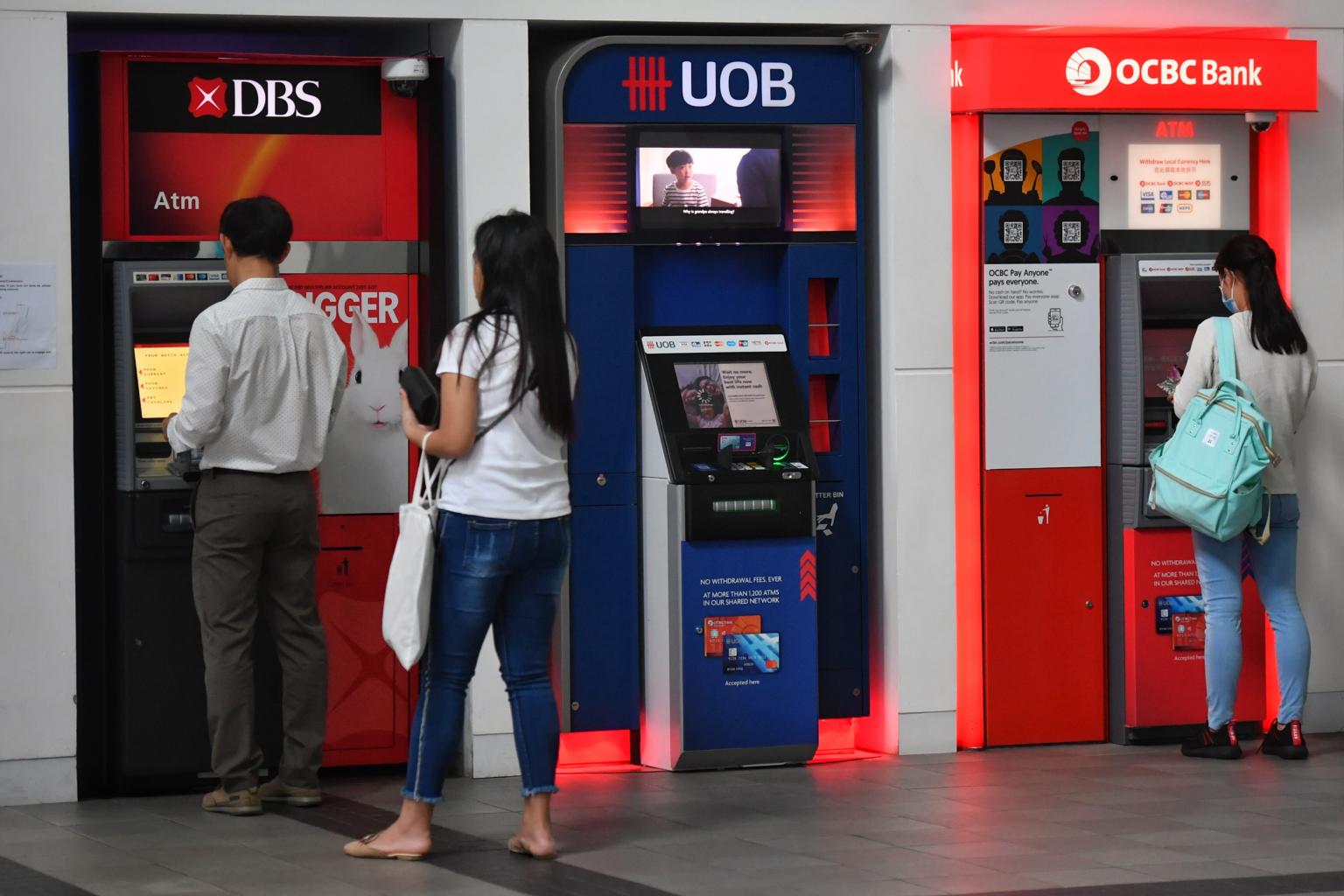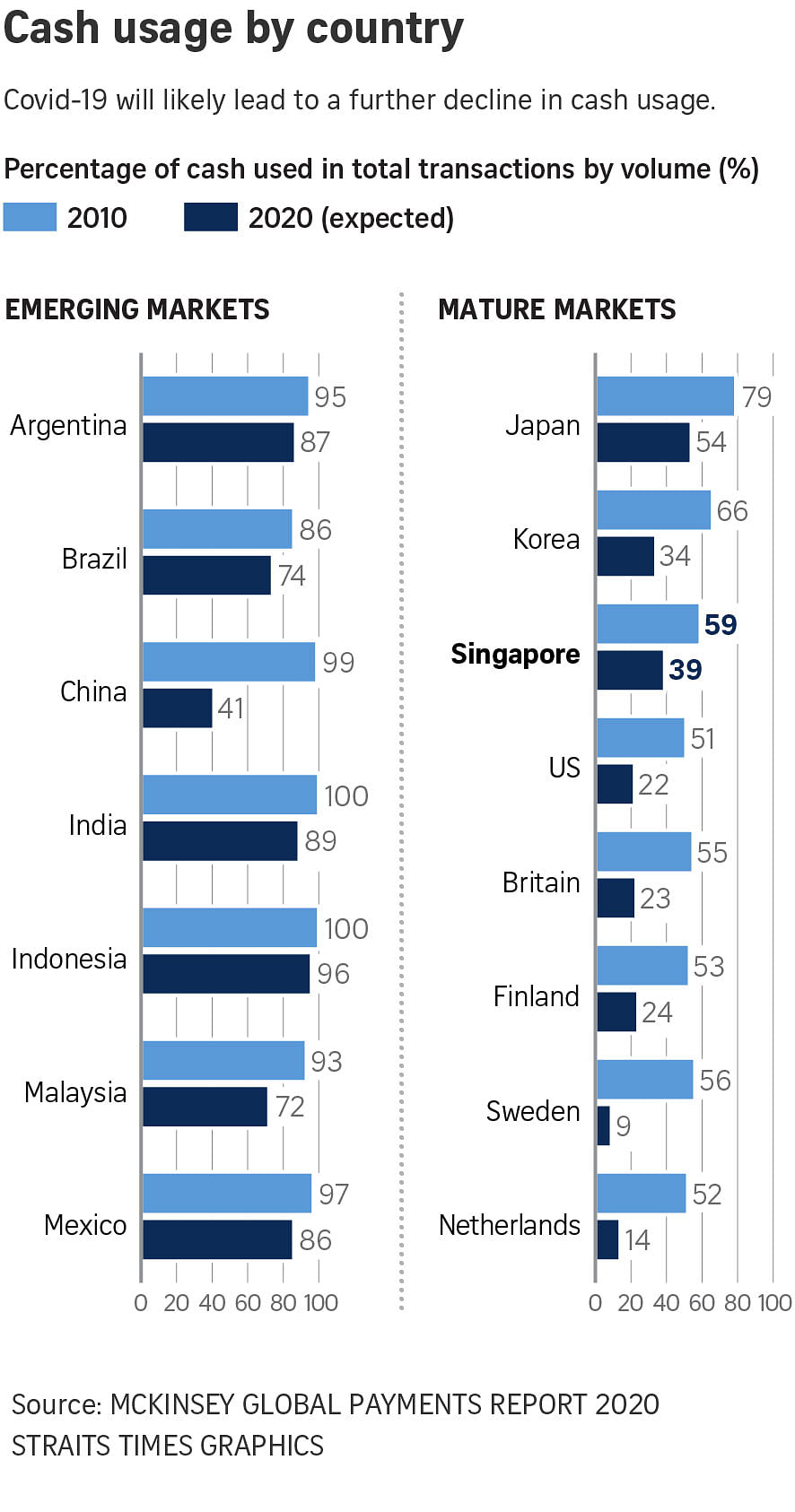Covid-19 pandemic might lead to further decline in cash payments: McKinsey
Sign up now: Get ST's newsletters delivered to your inbox

The pandemic has accelerated the move from physical to virtual banking, with banks closing branches and ATMs.
PHOTO: ST FILE
SINGAPORE - The pandemic will further undermine the use of cash amid a shift by consumers towards e-commerce and digital payments, a report noted.
It estimated that cash in Singapore will be used in 39 per cent of all transactions this year, down from 59 per cent in 2010.
It also found alternative options such as instant and mobile payments grew in Asia, while credit cards retained their strong position supporting e-commerce and point-of-sale transactions.
Globally, the pandemic has also accelerated the move from physical to virtual banking, with banks in various countries closing branches and ATMs, noted the annual report from management consulting firm McKinsey & Company.
"These accelerated behaviour changes in response to the Covid-19 crisis caused a fundamental shift in adoption of technologies. Investments in instant payments have begun to reap greater benefits, both in point-of-sale and e-commerce," said the report.
It added that the shift towards payment technologies has been fuelled by customer expectations for speed, price differences and higher adoption of applications such as GrabPay in Singapore.
Global payments revenue this year is expected to fall 7 per cent compared with last year as the pandemic has dampened discretionary spending, especially on travel and entertainment.
Asia-Pacific continued to dominate the global payments revenue, accounting for 45 per cent in 2019.
The report added that the shift to electronic transactions has increased the need for merchant acquiring companies to update and differentiate their services.

A merchant acquirer helps businesses process debit or credit card payments for their customers.
"Globally, merchant acquiring has evolved over the past decade from a legacy processing and hardware business to a full-stack software and merchant services solution," the report said.
The digital shift is also expected to drive up merchants' payments-acceptance costs, which are expected to rise by about 6 to 10 per cent - or $8 billion to $15 billion.
Merchants also face higher decline and fraud rates on digital transactions, with consequences for customer experience, said the report.
As some merchants consolidate their share of digital sales, they naturally seek to lower their cost of acceptance, which in turn adversely impacts margins for acquirers, said the report.
"However, digitalisation of commerce has created greater willingness to pay for enhanced services and solutions. Merchants are willing to accept higher fees for demonstrated value, such as improved authorisation rates and a more seamless payments experience."
Most of the revenue growth for merchant-services providers came from small and medium-sized enterprises (SMEs) as these businesses undergo digital transformation, a trend accelerated by the pandemic.
SMEs accounted for about three-quarters of all new revenue growth in the merchant-services space over the past three years.


